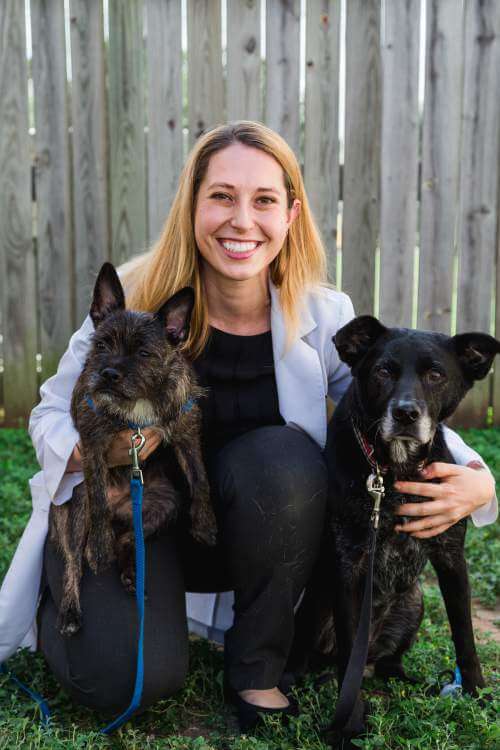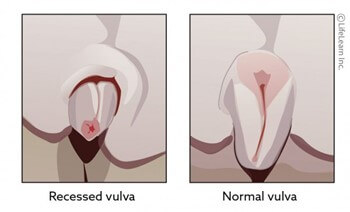by Krista Adamovich, DVM, DACVS-SA

Vulvoplasty, also known as episioplasty, is a surgical procedure performed to correct a conformational issue of a recessed or hooded vulva.
Dogs with a recessed vulva have excessive folds of skin and fat dorsally that hangs over the vulva. These skin folds create a warm, moist environment where urine can become trapped, allowing bacteria to proliferate. Affected dogs may develop inflammation, vulvar fold dermatitis, vaginitis, or urinary tract infections. Dogs may experience recurrent infections, requiring long-term antimicrobial therapy. Chronic use of antibiotics may lead to antibiotic-resistant infections. Over time, veterinary care related to management of the above clinical signs can also become quite expensive to owners.
In a vulvoplasty, a crescent-shaped piece of tissue, and sometimes fat is removed dorsally and laterally from the peri-vulvar area. This lifts the skin around the vulva, restoring the area to a more normal conformation. Vulvoplasty helps improve ventilation in this area, allowing the skin to dry out and making it more difficult for bacteria to grow. Additionally, this surgery prevents skin layers from rubbing together and further contributing to vulvar inflammation.
Although any dog with this confirmational abnormality is a candidate for vulvoplasty, ideally, a patient should reach skeletal maturity prior to surgery. This will minimize the potential risk of needing a revision surgery in the future, should confirmation continue to change as the dog grows. Other candidates that may require intervention would be those who experience moderate to large amounts of weight loss, leaving abundant extra tissue in the perivulvar region.
In general, the prognosis after a vulvoplasty is excellent. Studies show that a large majority of owners are pleased with their pet’s post-operative outcome as previous symptoms resolve entirely or decrease significantly in frequency.


